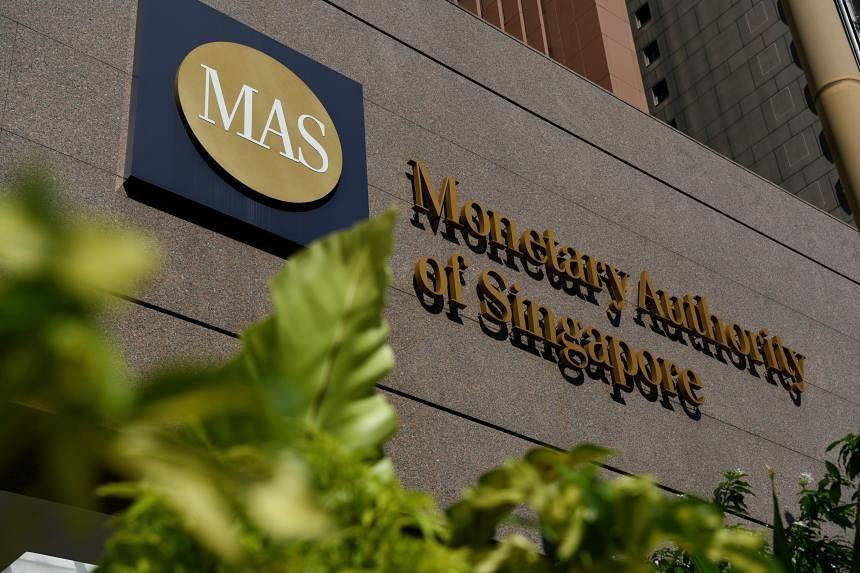Avoid online investment ads that don’t include company names

Social media is often long on extravagant promises but short on substance, as two grandiose promotions for financial products here amply illustrate.
The first is an investment that can double your money in a year. And if that’s not good enough, you are promised 10 per cent of the profits every month when you sign up.
The second deal is an insurance policy that covers you for serious illnesses and will even pay you a tidy sum while you recuperate. Your premiums will also not go to waste as the policy helps you save for retirement as well.
Other than snazzy photographs of smiling people – “satisfied customers”, presumably – both online ads share a common trait – they have a button for you to click so that you can submit your personal details, but there is no information about the companies offering these deals.
It’s obvious that if you come across similar deals online, there is only one prudent step: Ignore them entirely.
The reason is equally obvious – the first offer is likely to be a scam because there is no product in this world that can produce such high returns. If the deal is genuine, don’t you think it is odd that the sellers want to share such an opportunity with strangers like you?
As for the insurance scheme, it might well be a genuine deal, but you should still say no because its advertiser has committed a grave sin by putting customers like you at risk of being targeted by scams. Without disclosing the company’s information upfront, there is no way for you to check whether it is a genuine deal.
Since the company is so secretive about itself and what it is selling, alarm bells should be ringing, and you ought to avoid it like the plague.
The dangers that these types of promotions pose to unwary consumers have prompted the Monetary Authority of Singapore (MAS) to begin tightening the rules governing online advertising for financial institutions.
For a start, it is calling for a ban on all ambiguous online ads, especially those posted anonymously by sales representatives on websites and social media platforms, using pseudonyms.
Keeping their details secret suggests these advertisers may have something to hide because they are preventing you from checking whether the products are being sold by people and companies that are licensed by the MAS.
The regulator is also recommending that genuine online ads should come with key details, such as the names of the companies and people selling the products. Such disclosures will allow you to check if the companies and their representatives are listed in the MAS Financial Institutions Directory and the Register of Representatives.
Responsible businesses that care for their customers should start doing this now, before it is made mandatory, because it is probably the only way to show that they are the real deal.

Some scammers have already started using the names and logos of genuine companies in their fake online ads to lure unsuspecting victims. It will be harder for these crooks to produce fake ads if all genuine ones come with staff names and corporate contact details that can be verified by consumers.
You should also take note of these best practices to ensure that you are investing in products that suit your needs.
Look for the full picture
Let’s be honest. You are unlikely to part with your money if a brutally honest and candid ad states that you could stand to lose a big chunk of your investment if the global market suddenly takes a turn for the worse.
So, most sales pitches end up doing the opposite, which is to paint a rosy picture that implicitly suggests you will definitely make money. These pitches also often come with charts showing that the investments did well in previous years.
All investments carry risks, so ads that present only the benefits, and not the possible pitfalls, do not meet MAS’ best practices. Similarly, if product owners want to highlight the glowing record of their investments, they should carry a prominent message to alert customers that “past performance is not indicative of future performance”.
The regulator has come across misleading ads that highlight unsubstantiated high returns without mentioning any specific products. The high returns are usually presented without outlining how they can be achieved, and do not include a description of the key risks or other important caveats.
Remember that ads or sales pitches are just that. If you choose to invest, make sure that the terms governing the returns on your investments are stated in the documents you are signing.
Ads on ‘inappropriate’ platforms
You have probably seen all kinds of strange ads while surfing your regular social media channels. Some investment deals even feature famous business gurus or even political leaders who seemingly lend their support to these products.
Ignore such ads, which are probably created by scammers, because well-known country leaders would certainly not appear in any private advertisements that are put up to attract sales, let alone endorse those products as being beneficial for customers.
In addition, you should be wary of investment ads that appear on platforms that have nothing to do with such topics, such as online dating sites.
The use of inappropriate platforms by some sales people to get leads from potential customers is usually done without the knowledge of the financial institutions, because it goes against MAS’ best practices.
Many sales people are independent operators who are not employed by the companies because they earn a commission based on sales. Needless to say, some may overpromote the benefits of the products they are pushing.
Before you sign up, it is prudent to visit the official websites to check and compare that the terms of such products are the same. So it makes sense for financial institutions to ensure that their sales representatives always use the official ads or messages.
Views from ‘experts’
Social media influencers do not get blank cheques to promote their sponsors’ messages recklessly just to entice followers to buy what they are selling.
Indeed, overzealous “experts” may get sued by their followers if the messages turn out to be false. Some online stars in the United States were sued by their fans who suffered losses in some crypto platforms that were being promoted.
Financial institutions here should ensure that they engage influencers who follow only the best practices set by the MAS, namely to present a fair and balanced review of the products being promoted.
To do otherwise would be to court trouble if consumers cry foul that they were misled by false promises of good returns.
Finally, even the regulator acknowledges that it is impossible for any financial company to disclose all relevant information in its ads due to space constraints.
So it is wise to view ads as a good source of information about a new product or trend, but don’t stop there. Visit the official website to learn more about the products so that you can make an informed decision.
Join ST's Telegram channel and get the latest breaking news delivered to you.













No comments:
Post a Comment